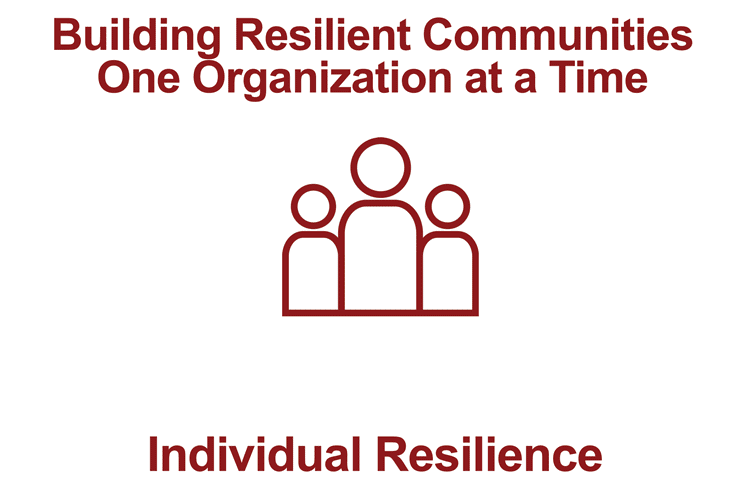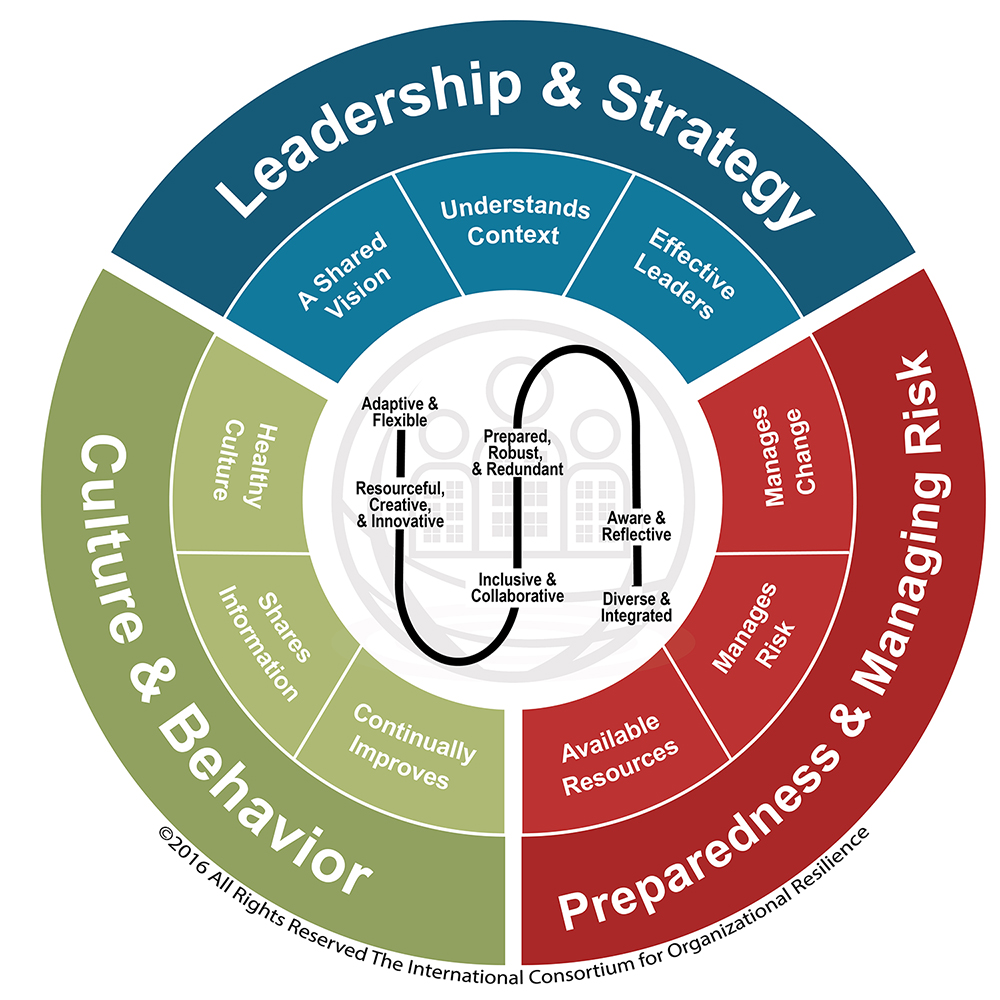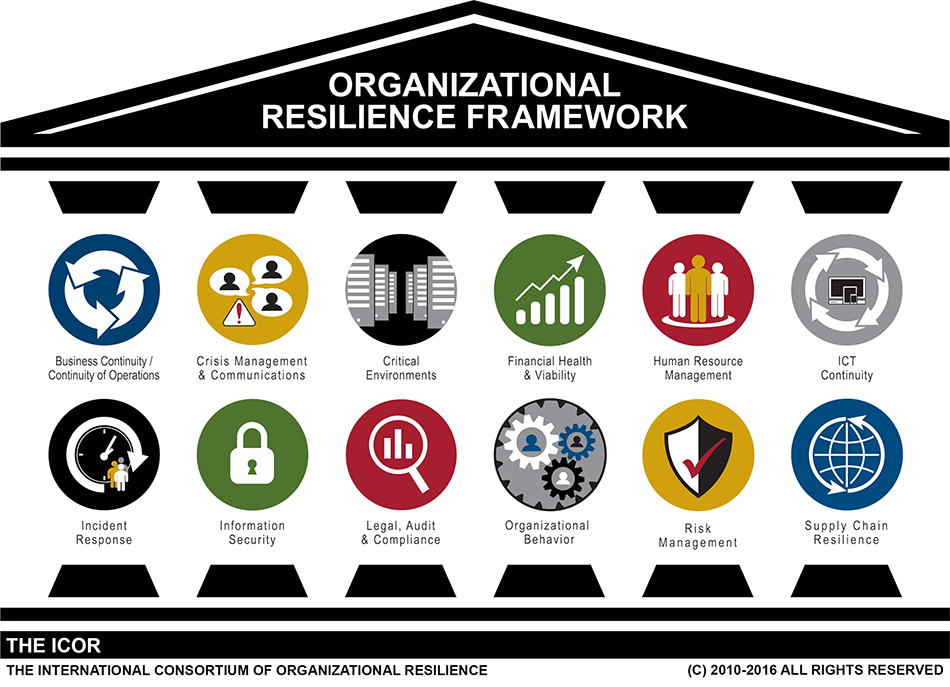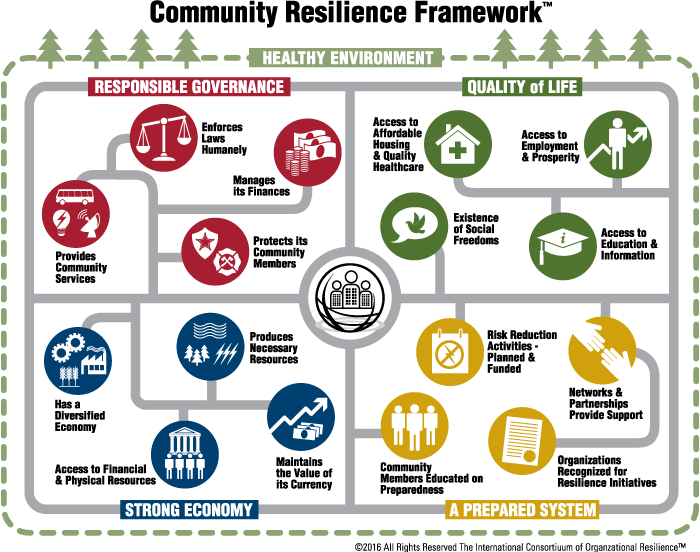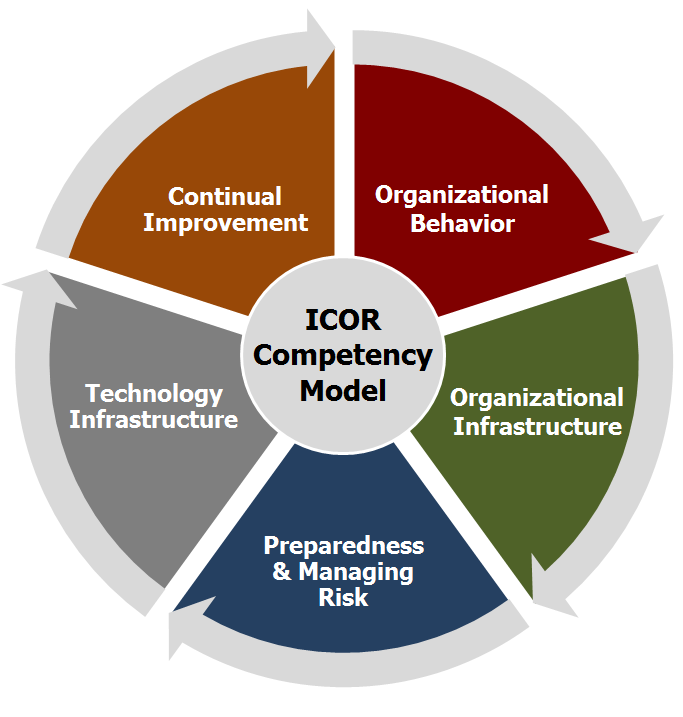Resilience is defined by the International Standards Organization (ISO) as the “ability to absorb and adapt in a changing environment.” Whether describing the resilience of an individual, an organization, or a community of any size, this definition provides us guidance.
The question then becomes, “Resilient against what?”
Most often discussions about resilience focus on the ability of the individual, organization, or community to resist being impacted in a negative manner when something “bad” happens. On the positive side, individuals, organizations, and communities that can adapt and manage change are considered to be more resilient than those that don’t or can’t adapt and change.
Resilience has been interpreted differently within different geographical contexts and academic disciplines. However, almost all of the studies speak to the common characteristics shown in the model in one way or another, despite their thematic, geographic and sectoral differences.
